
ホーム / ゼミ
![]()
ゼミ
ゼミの風景
ようこそ、植木ゼミへ!
植木ゼミは、多様な文化的背景や多彩な社会経験を持つメンバーたちが出会い、共に学び、 共に喜ぶ場所です。
植木ゼミは、多様な文化的背景や多彩な社会経験を持つメンバーたちが出会い、共に学び、 共に喜ぶ場所です。
植木ゼミでは、東アジアの国際関係と安全保障に関心を持つ学生をこれまで20以上の国と地域から受け入れ、日々グローバルな環境の下で研究を行なっています。
ウクライナやガザをはじめ、世界各地で紛争が行われ、治まる兆しはまだ見えません。
紛争を起こすのは人間ですが、止めるのも人間です。
植木ゼミでは、紛争の原因がどこにあるのか。紛争を止めるには何が必要なのか。
世界各地から集まったゼミ生たちが、日々活発な議論と研究を行っています。
ウクライナやガザをはじめ、世界各地で紛争が行われ、治まる兆しはまだ見えません。
紛争を起こすのは人間ですが、止めるのも人間です。
植木ゼミでは、紛争の原因がどこにあるのか。紛争を止めるには何が必要なのか。
世界各地から集まったゼミ生たちが、日々活発な議論と研究を行っています。
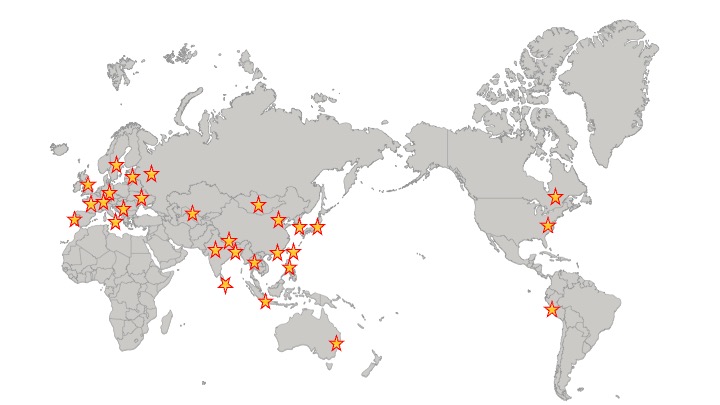
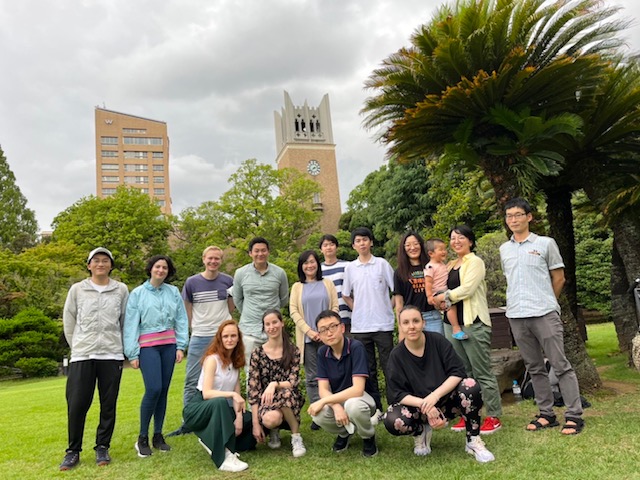
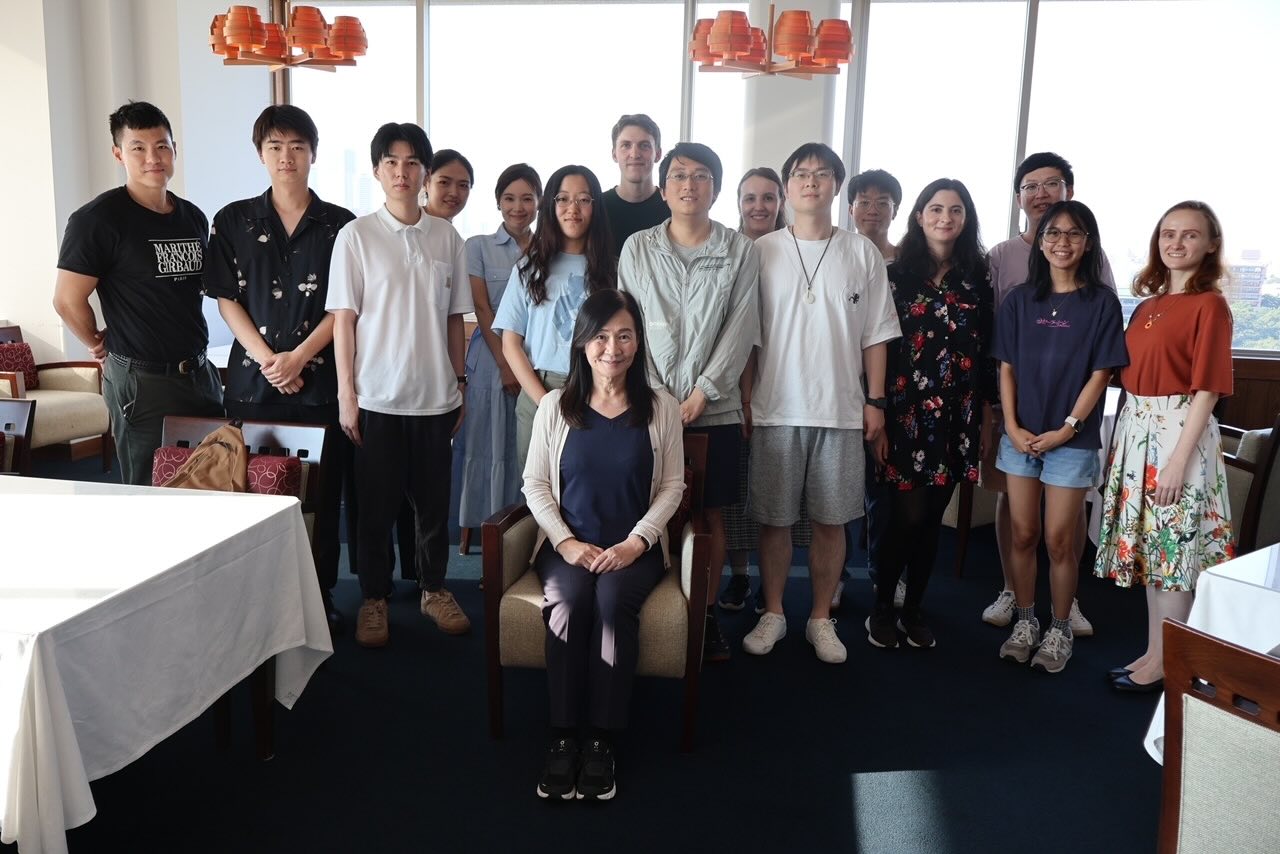
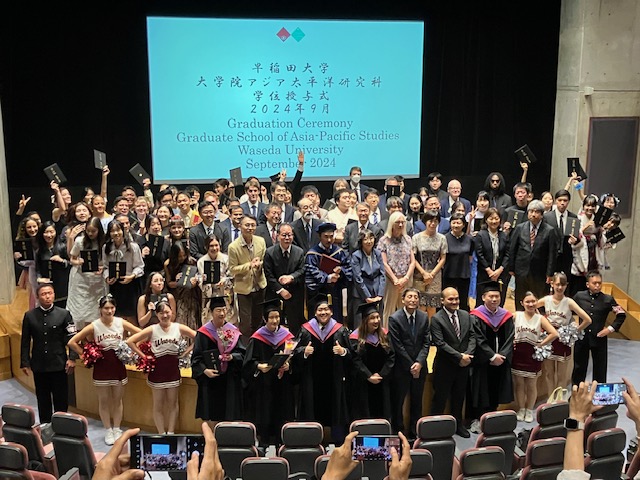
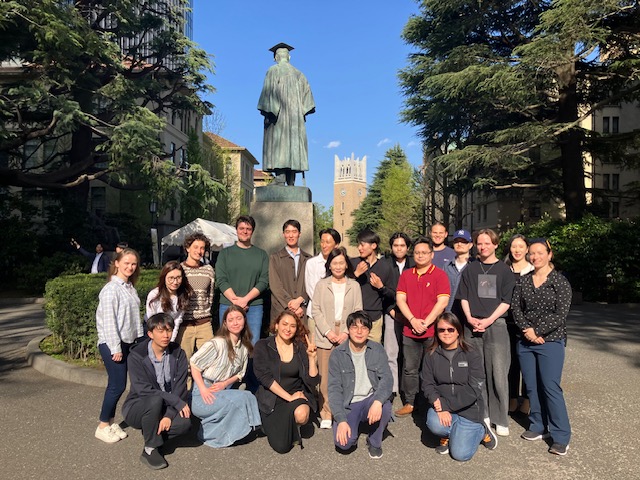

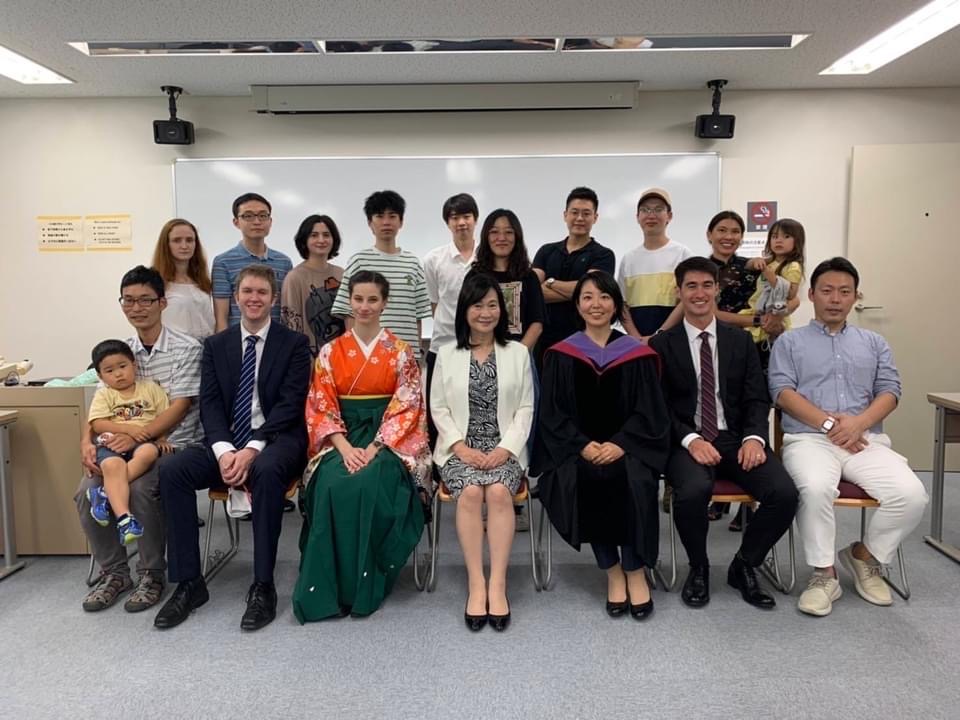
ゼミ生の研究テーマ
- 冷戦後日米中軍事戦略の比較研究
- The United States and Japan in the ASEAN Regional Forum:
Keeping Adversaries Close - Conditions for U.S. Agreement on the Closure of Contested Overseas Bases
- THREAT PERCEPTION AND BI-LATERAL DEVELOPMENT AID: CHINA AND JAPAN
- なぜ日本と韓国は安全保障協力と非協力を繰り返すのか
-日米・米韓 ハブ・アンド・スポーク同盟モデルによる説明- - Demography and Downsizing: Why Isn’t Japan Streamlining Its SDF?
- Not Just Compliance, but Calculation: Peru’s Deportation of Japanese Peruvians to U.S. Concentration Camps as a Tool of Strategic Alignment During World War II
- 弱者の選択 ―中国の対日米同盟の分断戦略(1955―1964)―
- 注目される紛争と注目されない紛争 ―注目の選択性と人道的介入の選択性―
- The significance of the Sakhalin Project for the Japanese
government:
Japan's energy security as seen from the Sakhalin Project perspective - China's Opportunistic Land Reclamation and Militarization Activities in the Spratly Islands
- Changing the Tiger's Stripes
The Quad as a Tool of Engagement of India - 韓国の対中外交戦略の変化が日韓安全保障協力に及ぼす影響について
―日韓GSOMIAを事例に― - 第一次日英同盟協約における手段としての同盟と目標達成への貢献
- 国家間の政治関係が実務協力に与える影響
―2012年5月-2023年4月の日中高級事務レベル海洋協議を中心に― - Japan's Post-Fukushima Nuclear Energy Policy : Understanding the Role of Nuclear Latency
- Analyzing China-Japan Public Health Cooperation in the Age of Pandemics
- Why the South China Sea Issue Escalated into an International Hotspot : A Critical Security Study Perspective
- The Transformation of Japan's Defense Policy : Exploring Factors Affecting Japan's Decision to Cooperate with the United States on Ballistic Missile Defense in 1998
- Economic Interaction and Public Opinion in Sino-Japanese Relations : Changes in Public Opinion as a Result of Economic and Trade Interactions After the 2012 Territorial Dispute
- The North Korea threat and its role in the Japan-ROK 2015 Comfort Women Agreement
- Effect of Threat on Japanese Public Opinion on Strike Capabilities
- Addressing a Common Threat with Divergent Foreign Policies : The Role of the North Korean Factor in the 2019 Japan-South Korean Trade Dispute
- Defending Interests through Economic Power?: An Examination of South Korea's and Australia's Response to China's Economic Statecraft
- Beyond Normal: An analysis of the EU and Japan rapprochement in 2017
- アジアの安全保障環境に対する「グレーゾーン作戦」の影響
- 危機の有無と危機管理メカニズム協議の進展 ー日中海空連絡メカニズム協議過程の考察ー
- Regime and Public Opinions Dynamic in China: A Case Study of the Xinjiang Incident
- Japan’s Involvement in the South China Sea : Threat and Strategy Change
- The Changes of Japanese Policy towards Taiwan
- Bangladesh : Hedging State in the Contemporary Power Politics In South Asia
- 安全保障政策の現状 -新冷戦期の歴史的視点を通して-
- China’s Reunification Dream: Strategic Thinking on the Taiwan Issue
- Anti-nuclear Sentiments among the Japanese Population
- Responding to Threat: Japan’s Arms Transfer Strategy in the 21st Century
- Growth of Coast Guard Services: Implications for Maritime Disputes in the East and South China Sea
- 中国が一帯一路での米中協力を重視する理論的背景
- Strategic Stability in the East China Sea
- DDRによる兵士削減とPKO要員の安全性における相関関係
- Quadrilateral Security in the Balance: Australia and the Revival of the Quadrilateral Security Dialogue
- 中国の対ベトナム外交 ―南シナ海紛争と経済協力―
- Competing for ASEAN: The influence of China over Japan's ASEAN policy since 1989
- 日本のエネルギー安全保障における中国
- Significance of Security Dilemma to Japan’s Defense Posture 2009-2016
- From Entanglement to Abandonment: Japan’s Defense Policies and the Alliance Dilemma
- The Abe Administration’s Russia Policy Reset: Balancing Over the Northern Territories
- China’s threat perceptions to the Japanese security postures
- 台湾の安全保障戦略と両岸軍事的信頼醸成メカニズムの構築 ―模索期における台湾側の姿勢変化の要因―
- Rising China’s Influence in Shaping Japan’s Security Policy in the 21st Century
- The Abe administration’s East China Sea strategy: Provocation, accommodation, and neoclassical realism
- Japan’s Commitment in Counter-Terrorism in the Post September 11 Incident: International Terrorist Threat or U.S. Alliance
- The International-State Security Identity: Japan’s post-postwar consensus?
- Unsheathing the Sword Once Again: Why Japan sees China as a Threat
- スリランカ和平失敗の背景
- The Dynamics in Cross-Strait Relation From the view point of trade expectation
- The Security Dilemma of a Lesser State in an Alliance
-Case Study on the US-ROK Alliance in the 21st century- - 六者会合: 北朝鮮核問題における多国間主義の失敗
- China’s Foreign Policy under New Leadership Revisionist or Status Quo?
- 米軍基地をめぐる沖縄と日米の相互作用 -沖縄県知事の訪米要請を事例として-
- 小泉・安倍外交と日中関係の変動(2005年-2007年) -安心供与外交による「靖国問題」の自制-
- 日本の安全保障政策の転換と対米協力 -イラク戦争における対米協力成功の要因-
- Russian Threat Perception toward China and its Impact on the Russian Foreign Policy on the Northern Territories Dispute with Japan - Under the Putin and Medvedev administration -
- ASEANの南シナ海領有権問題に関する合意形成要因
-2011年~2014年のASEAN外相会議(AMM)共同声明を事例に- - A Strategic Evaluation of the Tokyo Tribunal, 1946-1955
- Traces of Small Surprises near the East and South China Seas
- China’s Civil-Military Relations and its Effect on Military Incidents near the East and South China Seas - - The First North Korean Nuclear Crisis and Cooperation Between the United States and South Korea
- In Arms We Trust: The Taiwan Lobby and US Arms Sales
- 台湾の対日政策の変動 -対日領土問題における対中脅威認識による影響-
- Pivotal Outcomes - Evaluating the Obama Administration's Foreign Policy in the Asia-Pacific -
- Mock Operations and Real Wars
- United States-Japan Military Exercises and Deterrence in Northeast Asia - - イデオロギー対立と同盟の解消 -中ソ関係(1956-1963)から見るイデオロギー対立-
- Anti-Foreign Protest Lenth and Demand as Determinant of Signal Sent by a Capable Authoritarian Regime
- External Balancing is Large, It Contains Multitudes
- Japan's Strategic Partnerships in Asia and Its Balancing Strategy towards China- - 軍事的安定の達成が非伝統的安全保障政策の成立に与える影響
-日本の非伝統的安全保障政策について- - Japan's North Korea Security Policy and the Influence of Domestic Politics
-Prioritizing the Abduction Issue over Denuclearization- - Uneasy Lies the Head that Wears a Crown - Hegemony, a Rising China and the Intolerance of Peers
- North Korea, the Axis of Evil and Beyond
- Regime Creation as an Effect of United States Foreign Policy Under the Bush Administration - The Currency of Conflict: The Collapse of the Gold Standard, Exchange Regimes, and the Imbalance of Power in the Interwar Period
- Japan's United Nations Foreign Policy: Rationale for a Bid for the United Nations Security Council Permanent Membership
- The Rise of the PMSCs: Why Has the US Started to Rely on the PMSCs?
- State Survival and Autonomy: Do States Go to War to Survive?
- Conceptualizing Japanese Defense in the Post-Cold War Era: Normative and Realist Constraints
- US-ROK Alliance: Rationale of Allies' Divergence of Positions on Policy towards North Korea
- 日中政府間に立ちはだかる歴史問題 -「謝罪」から「相互理解」の時代に向けた模索-
- Why is Japan's Bilateral Official Development Assistance (ODA) to China Declining?: National Security Influences on ODA Decision-Making
- Understanding Russian Threat Perception: The Case of NATO and China
- Is Learning the Key to Improve Performance in Aid Projects?
- NPT in Question: United States' Nuclear Cooperation with India
- Indo-Japan Civil Nuclear Agreement Prospects of a nuclear pact under the DPJ administration
- The Perception of Threat and the Evolution of Alliances -Explaining the U.S.-R.P. Security Relation-
- 冷戦後の日本の安全保障 -日本における海兵隊抑止力議論の始まりと展開-
- Understanding Preventive Wars - Lessons from Pearl Harbor-
- U.S. Base Dependence in Okinawa - The Relationship between U.S. Bases and Voting in Okinawa-
- Soft Power and the Fulbright Program: The Effect of Studying America on Japanese Exchange Participants
- Threat Perception and Taiwan Identity
- How the Perception of China Heightens the Growth of Identity in Taiwan - - 米豪同盟の理論的考察 -シドニー声明に至った過程から-
- ヨーロッパ統合から見る東アジア共同体と東アジアアイデンティティーの創造とその課題
- The ROK's Divided Allegiance: The ROK-US Alliance in the Era of the Rise of China
- A Balancing Act: China Challenge and Japan's Courting of India in East Asian Multilateral Mechanisms
【博士論文】
<2024年度>
<2023年度>
<2022年度>
<2019年度>
<2018年度>
【修士論文】
★NEW★<2025年度9月修了>
★NEW★<2024年度3月修了>
<2024年度9月修了>
<2024年度3月修了>
<2023年度9月修了>
<2022年度3月修了>
<2022年度9月修了>
<2021年度3月修了>
<2021年度9月修了>
<2020年度3月修了>
<2020年度9月修了>
<2019年度3月修了>
<2019年度9月修了>
<2018年度3月修了>
<2018年度9月修了>
<2017年度3月修了>
<2017年度9月修了>
<2016年度3月修了>
<2016年度9月修了>
<2015年度3月修了>
<2015年度9月修了>
<2014年度3月修了>
<2013年度9月修了>
<2012年度3月修了>
<2012年度9月修了>
<2011年度3月修了>
<2011年度9月修了>
<2010年度3月修了>
<2010年度9月修了>


